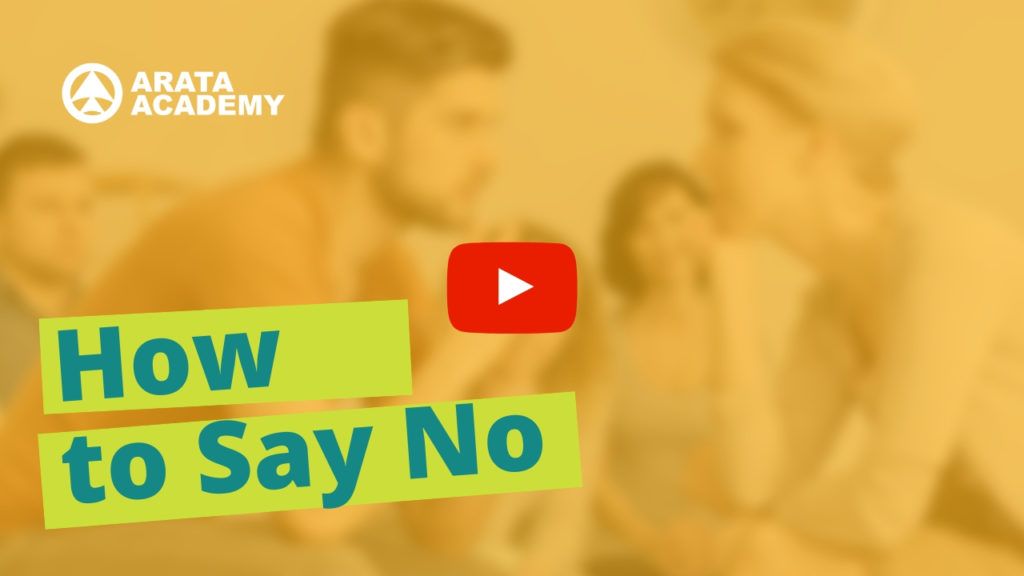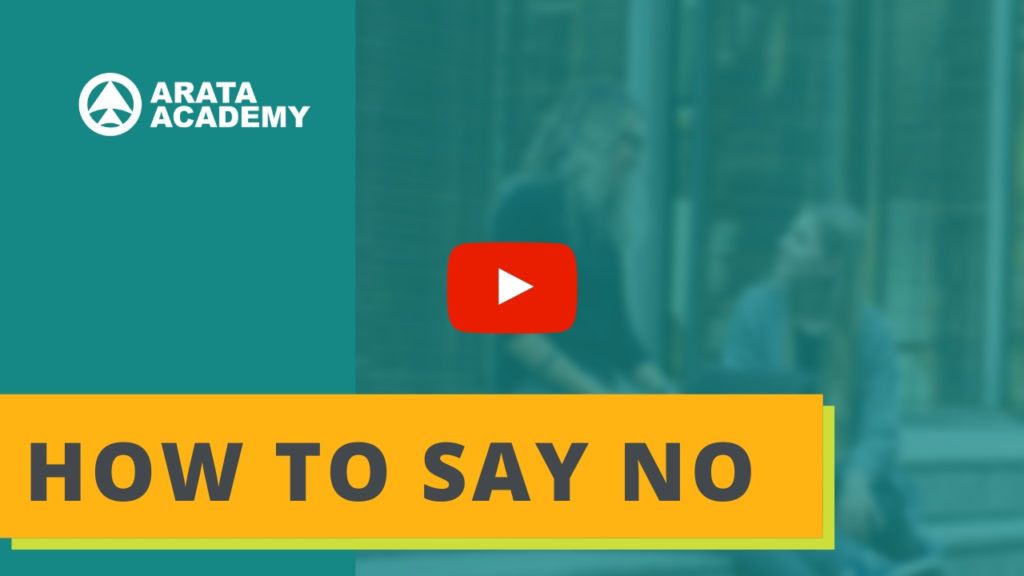Hello! Seiiti Arata. Last week we saw why it is hard to say no. It was our episode 67, which you can view at http://arata.se/hello67. And one of the main reasons for this difficulty saying “no” is the superhero syndrome.
The need for connection is one of the most important human needs. We want people to like us. This is normal and healthy. We have evolved to live in society.
We want, however, to avoid exaggerating this tendency. And it’s a kind of exaggeration to say yes to everything that people ask us. On the one hand, there is a good feeling when we say yes, because we avoid the feeling of disappointing others. On the other hand, we need to understand that every time we say yes to something, we’re saying no to something else we could be doing with our time. A person who suffers from Superhero Syndrome believes he or she has a duty to sacrifice for others all the time.
1. Healthy adult people can survive without you.
You are not a superhero. When other people make a request of you, respect their ability to find a solution on their own.
If you are not able to help at that time, they can look for another way to solve their problem.
It is even a bit arrogant to think that you are the only person in the world who can help.
There are problems when you are using the mask of the Rescuer, which we explain in the video, Relationships Without Drama, at http://arata.se/withoutdrama.
Enter the arata.se/withoutdrama link, because it is essential for you to understand the content of that video today. The person who wears the rescuer mask in a relationship is one who will have difficulty modifying the relationship and getting out of the abuse. Even in a bad relationship, the one in the rescuer role believes that he or she has some special power that is indispensable to save the other.
The superhero syndrome feeds the illusion that only you have the power to save the other person, so you have the responsibility to keep that relationship going.
You have to allow for the growth of other people. When you step back and say no with sincerity, with love and humility, you are giving the person before you opportunities to develop skills and to solve their own problems.
2. Invest in self-knowledge.
What are your fears about saying no? You know, the fears that motivate you and that block you? If you do not even understand what your fears are, it will be difficult to promote any change. That’s why we have exercises to overcome these fears in our course, How to Say No. They are quick videos that have activities that will reshape the structure of thinking and overcome your fear and anxiety about saying no. You can get access at http://arata.se/howtosayno.
Many people seem to feel an obligation to say yes to everything. We are afraid of being judged. We are afraid to make our colleagues angry. Saying no can induce guilt and fear that people will start to hate us.
Understand your priorities. You’re the only person who can really identify the priorities in your life. Your happiness will be determined by your choices.
Some people say “yes” without thinking, without reflecting. If this is your case, when you are unsure of something, pause—and consider saying no before you say yes.
When it is something you’re not really excited about, say no.
And watch out for people who insist that you change your mind. No one has the power to guess what is best for you. You are the only person who can make this evaluation.
3. Understand the consequences and the price that you will pay for saying yes.
The only one who will face the consequences is you.
It is you who will be affected by the choices you make in your life, who must take responsibility for your decisions. You alone will pay the price for your lack of assertiveness.
So if you say yes to something you cannot do with quality, it is you who will suffer the consequences. If you commit yourself to something you have no joy in doing, is you who will suffer later. The one who is wasting time is you.
4. You are not responsible for the reaction of others.
Often we say “yes” out of fear of disappointing others, or for fear of hurting others. This fear comes from a strong desire to connect, to earn approval. When exaggerated, it can be very damaging.
We put too much focus on keeping other people happy, and we forget our focus on achieving the results we seek.
In the course How to Say No, you will learn how to develop the clarity to establish healthy boundaries and to stop obsessing about what others think of you. This is how you can make better choices and have more authenticity in your life.
I know you do not want to be a selfish person. But when you say yes to everything, even when you would prefer to have said no, this is one way of being selfish, because you are trying to buy the friendship of others by being nice. You are playing the role of a good person, and this is the Superhero Syndrome.
Life goes on, whether you say yes or no. You can choose to spend your life suffering and always being in a hurry because you say yes too often and promise too much… or you can spend your life with confidence, focusing on what’s really important, at a speed that is suitable for you and enjoying every minute, living in the present moment because you knew to say no.
The choice is yours.
Are you going to live the life you want? You will have to deal with the consequences of your choices. All this will start when you realize that you can say no. Visit our course, How to say No, at arata.se/howtosayno.

